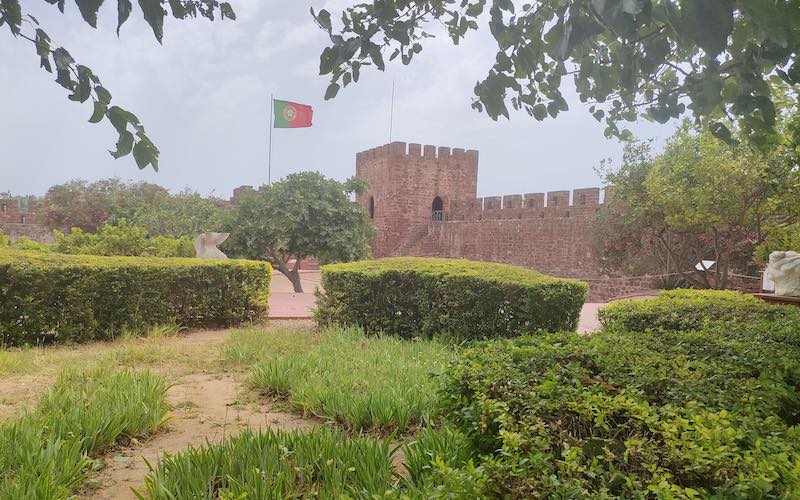Portugal is quickly becoming by one of the top destinations for British tourists, and also for people looking to move from the UK or USA in search of a more relaxed pace of life. Portugal is one of my all time favourite travel destinations and also my second home! So I’m sure that if you as me and many others ‘is Portugal worth visiting’ you will get a firm YES!
Disclosure: templeseeker.com is a participant in the Amazon Services LLC Associates Program and other affiliate advertising programs designed to provide a means for us to earn fees by linking to Amazon.co.uk, Get your Guide and other affiliated sites. Affiliate links may be used in this article on ‘Is Portugal worth visiting?’, but they do not impact on the price that you pay and they do help me to get this information to you for free.
Portugal is a country of contrasts, with the beaches of the Algarve, the nightlife of Lisbon, the traditional towns of central Portugal with phenomenal churches and castles and the wineries of the Douro valley. In short, whatever you are into, you will find something that suits you in Portugal.
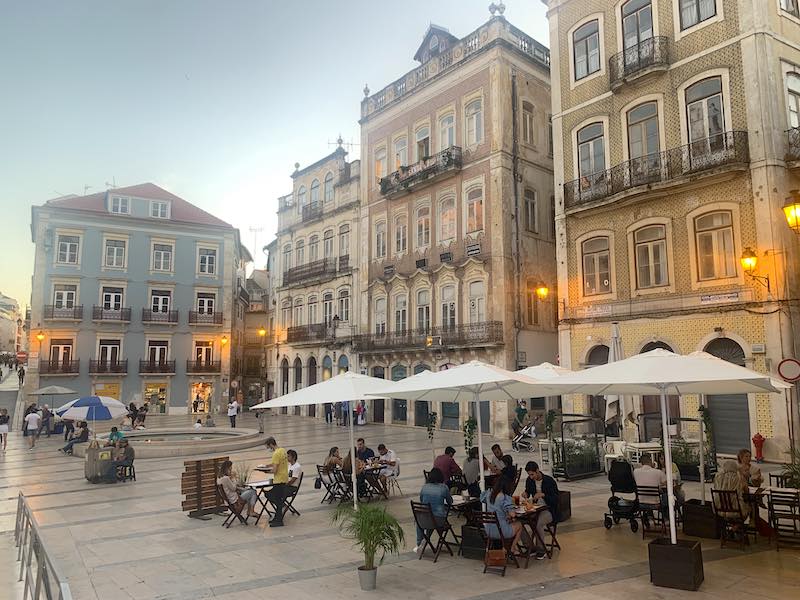
Photography copyright: All the images in this blog are original photography by Amy Green and are property of @templeseeker (unless otherwise stated). Please do not use these without permission or without giving credit. If you would like to use any of these images please email: amy@templeseeker.com for permission.
How long should I spend in Portugal?
Portugal is great for a long weekend getaway (most people do Lisbon or Porto), or perfect for a longer stint of travel such as 2-3 weeks. The great thing about Portugal is that it’s very easy to travel between cities and towns using their bus and train system. So, don’t limit yourself to one destination – be more adventurous and opt for two or three destinations over a few of weeks if you have the time to spend. For those who prefer a beach holiday with opportunities for sun worshipping, head to the Algarve for a week or two. It is easy to travel along the Algarve coast by train and so you can explore several places by just keeping one main base location.
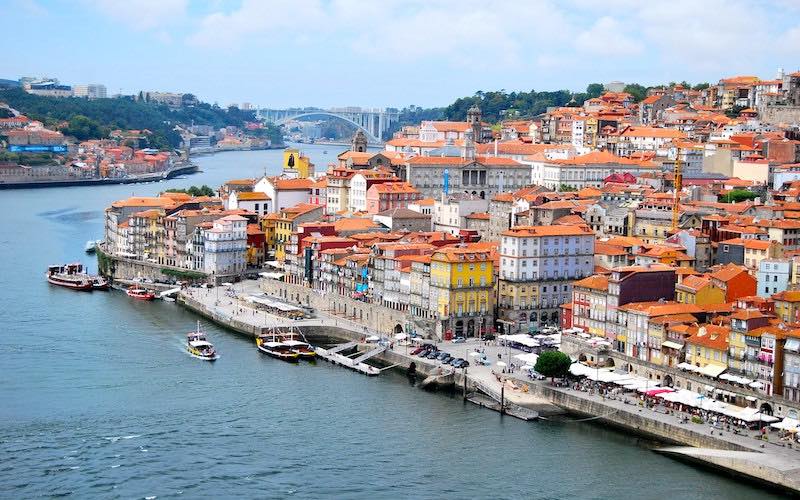
How to get to Portugal
There are direct flights with Ryanair, Easyjet and TAP to the main airports in Porto, Lisbon and Faro. You can fly to Portugal from many UK airports quite cheaply – flights go from Manchester, Birmingham, Liverpool and London (all airports).
If you are flying from the USA, you can fly direct from Newark airport to Porto or Lisbon with United Airlines. You can also fly from San Francisco to Lisbon with KLM. There are more flights from the USA to Portugal, of course, but these are the most popular direct options.
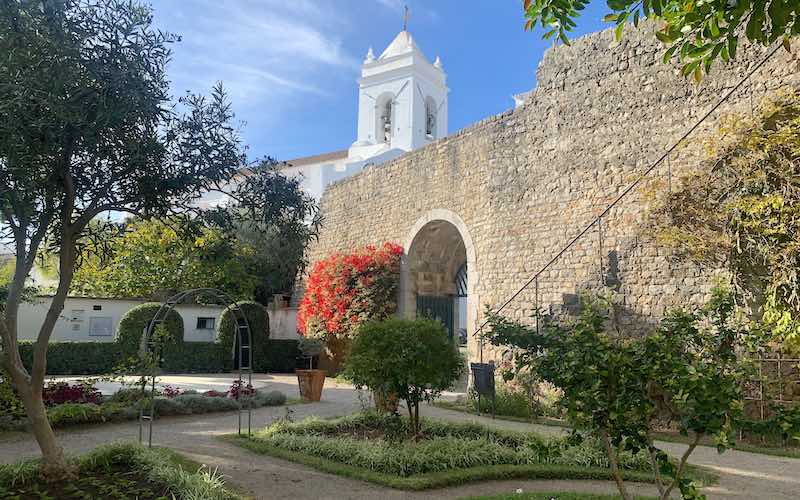
Is Portugal worth Visiting?
So, is Portugal worth visiting? Absolutely! There’s got to be a reason why Portugal is amongst the top 10 countries for Brits to go on holiday (coming in shortly after Spain, Greece and France). Portugal has a lot to offer including a variety of activities for different kinds of holiday makers. The Algarve, for example, is perfect for golfers, hikers and surfers. But, if you are more of a culture-vulture like me, head to the North to be impressed by Portugal’s phenomenal castles and Churches. And for the wine lovers, head for a Douro Valley tour and you will not be disappointed! Lisbon and Porto offer the best of city life including monuments, museums and nightlife. Wherever you choose to visit in Portugal, I have no doubt that you will enjoy your time there.
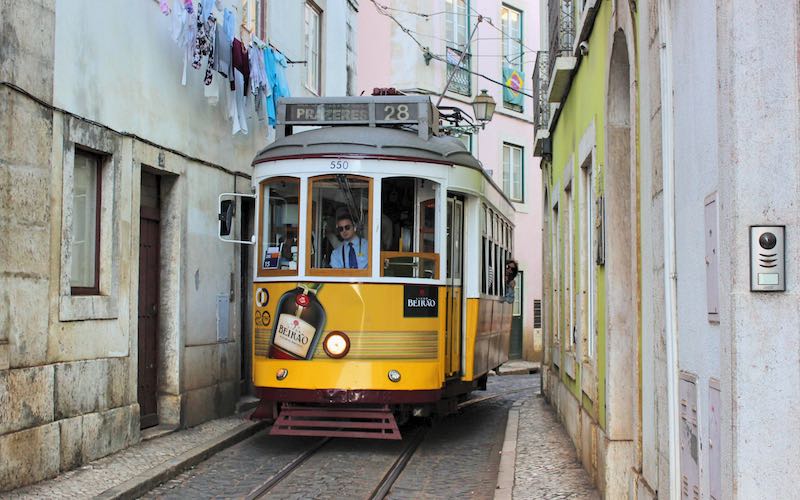
A Brief History of Portugal
Before Muslim armies arrived, the region was ruled by Visigoths, a Germanic people who ruled between 418 and 711. Follwing the Visigoths, the Moors (North Africans) invaded the Iberian Peninsula (known in Classical Arabic as al-Andalus) In 711. This included most of Septimania (a historical region in France) and modern-day Spain and Portugal.
Portugal was founded in 1143, when the Zamora treaty (agreed upon by D. Afonso Henriques, the first King of Portugal, and Alphonse the VII of León and Castile), recognized Portugal as an independent kingdom. In 1179 that status was confirmed by Pope Alexander the III.
Portugal was neutral during WW2, but was ruled by Salazar, a dictatorial Prime Minister in power from 1932 until 1968. In 1974, military coups started a revolutionary period against Salazar’s fascist dictatorship. Now, on 25th April every year, this day is celebrated as ‘Portuguese Freedom Day’ or ‘O Dia da Liberdade’.
Pros of Portugal
So, let’s take a look at the advantages of Portugal. There are honestly too many to list! But, what comes to mind when I think of the positives of visiting Portugal? I think of the fresh fish, castles, Churches, beautiful beaches and friendly locals.
Food including Fresh fish
I honestly feel like I have never eaten better in all of my life, than when I have been in Portugal! There are amazing fresh fish dishes served throughout Portugal and particularly along the Silver coast and Algarve where it is very fresh! They also have some fantastic soups and stews. If you have a sweet tooth then you will love trying the local sweets such as the Pasteis de Belem in lisbon, the Pastel de Santa Clara in Coimbra or the Ovos moles of Aveiro!
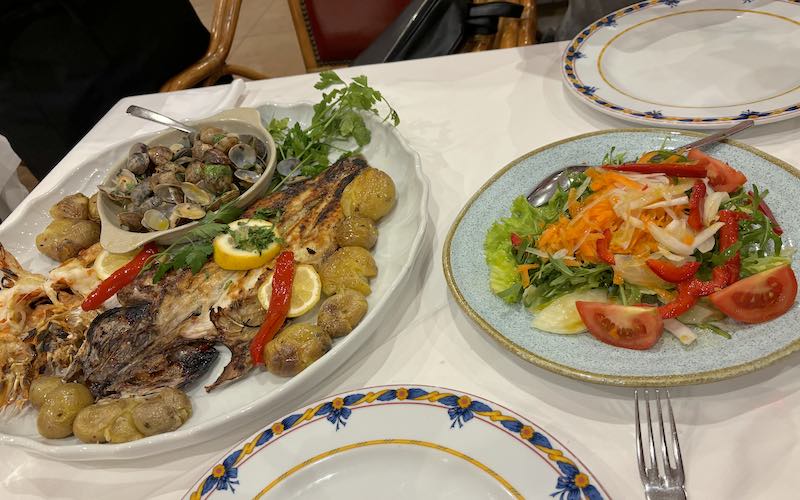
Good and cheap drinks
Local drinks to try include…
- Beer – Sagres and Superbock (they say that if you support Bemfica you drink Sagres and if you are a Porto FC supporter then you drink Superbock!)
- Douro Valley wine – Vinho Tinto
- Ginjinha or Ginja – Portuguese cherry liqueur made by infusing ginja berries (sour cherry).
- Beirao – Portuguese liqeur from the Beira region made by a double distillation of seeds and herbs, including mint, cinnamon, cardamom and lavender.
If you love Castles, you will love Portugal!
If you are interested in History then there are some amazing castles to see in Portugal. There were two main periods of castle construction in Portugal. The first was the castles built by the Moors (from North Africa) between 8th and 13th Centuries. The second period of castle construction was those built or maintained by Christian forces after that.
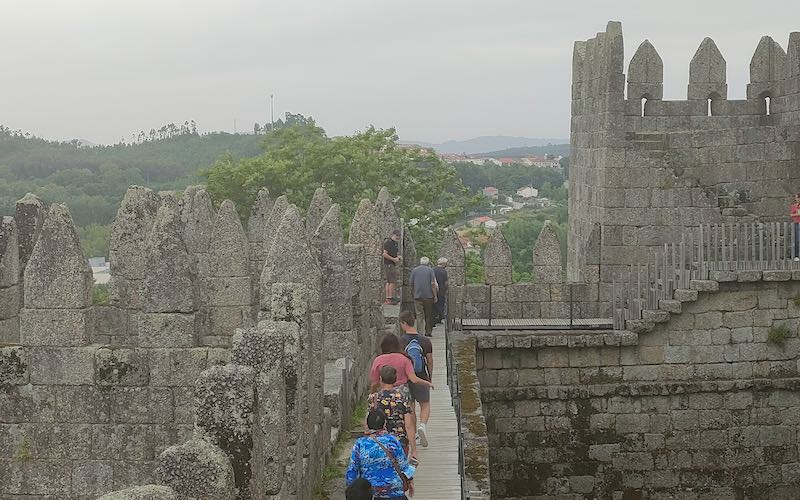
Here are some of the best and most beautiful castles to visit in Portugal…
- Pena Palace – Colourful castle on a hill in Sintra
- Castle of the Moores – Moorish castle in Sintra
- Sao Jorje – Overlooking the whole of the city of Lisbon
- Guimaraes Castle – Castle dating back to 10th Century
Beautiful Churches and Azulejos architecture
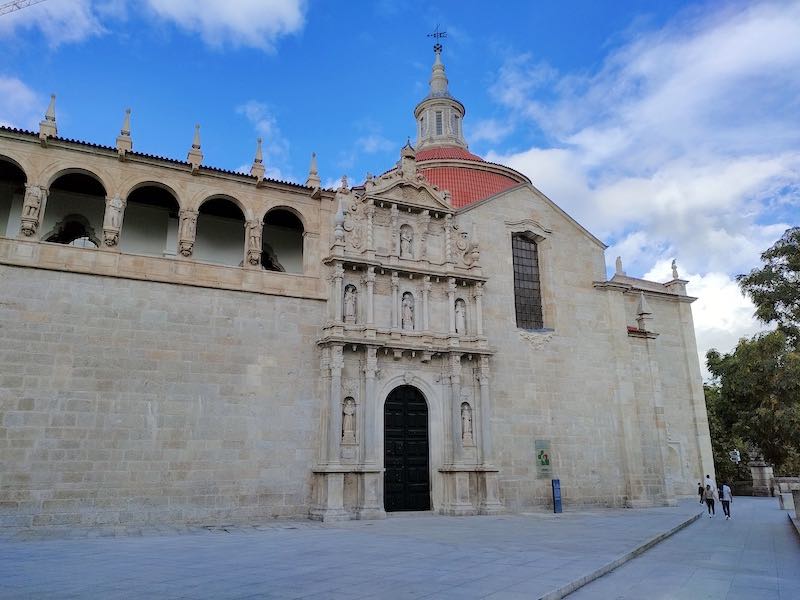
Beautiful Beaches and great surf
Portugal has some great beaches, particularly in and around Lagos (Algarve) and the Silver coast. As it’s the Atlantic (not the Mediterranean) you get some great waves and so Portugal is a surfers paradise. However, be aware that the sea is very cold and not always safe to swim. Bathing season when you often find lifeguards is from 1st June to end of September.
Friendly and helpful locals with many English speakers
In Portugal, I have always felt welcomed as a foreigner. The locals are friendly and helpful and many appreciate the tourists due to the money that they bring which contributes to their livelihoods. In most tourist areas and also in the main cities (Porto and Lisbon) you will find English speaking Portuguese people.
Excellent value for Money
Portugal may be getting more expensive for accommodation (Investors from abroad have pushed prices up over the last few years!) you will still find Portugal excellent value for money. In many towns and cities it’s still possible to get a small beer (finho) for €1 and ‘menu do dia’ or ‘“pratos do Dia” which is usually two or three courses for €10-12.
Great Public transport system
Portugal has a great public transport system and so you will not need to take a car (unless you want to explore more remote areas such as Sagres). Trains run all the way across the Algarve and also to the main cities including Lisbon, Porto, Coimbra and Braga. You can book your train ticket online and in advance on cp.pt. You can also opt for the bus as it’s a bit cheaper and still quite comfortable – Rede Expressos operate across Portugal and Flixbus connects the main cities of Portugal and Spain. For example, it is evem possible to get a bus from Lisbon to Madrid.
Cons of Portugal
Let’s face it, no-where is perfect and every country has it’s down sides! It can be cold in the winter and there are a few health and safety things to be aware of. Although these cons of Portugal as outlined below, I would strongly emphasize that none of them should be enough to put you off visiting Portugal completely!
Poor weather in the North
One thing is for sure – don’t go to the North of Portugal in January and expect it to be like the Algarve in summer! The weather can still be quite cold in the winter, especially in the Northern cities such as Braga, Coimbra and Porto. If you are visiting Portugal between October and March, pack a pair of jeans (or two), a few leggings and a couple of long sleeved tops or jumpers. Walking boots and thick walking socks are essential.
Risk of sunburn or heat stroke in the summer
This is the other extreme – don’t underestimate the power of the Portuguese sun. I was used to being in the North of Portugal in the cooler months, and so when I visited the Algarve in July, it didn’t occur to me to use sun cream, as I had been in Portugal some months and never needed it. This was a major error as I had to walk around Quarteira with very red and painful legs for the next few days! It’s important to use suncream when it is sunny, particularly in the summer in the Algarve. Also, remember to wear a sun hat and keep hydrated. Take a refillable water bottle and be constantly taking sips. Also, if you are drinking alcohol, try to alternate between alcoholic and non-alcoholic drinks, so that you stay hydrated.
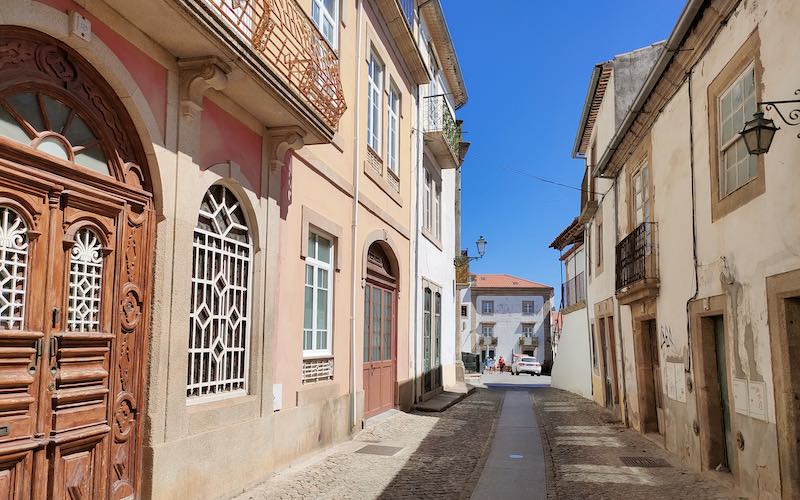
Lack of Central Heating in some Accommodation
What I find strange about Portuguese accommodation as a Brit is that it often lacks central heating. Let’s be honest, there are only really two or three months that you would need this – from December to February. However, this means that you could potentially be really cold during the winter. Many Air BnB’s and hostels have electric heaters and spare blankets available, but you have to ask for them. The other thing that is a bit different for us, is that Air Con can do both hot and cold air. Once I told my host that I couldn’t find the heater – she came in, showed me the ‘air con’ and ramped it up to 21 degrees! Take warm pyjamas if you are visiting Portugal in the winter time, you will appreciate them when you are there!
Electricity that is outdated or trips
Twice now I’ve experienced electricity ‘tripping out’ due to having ‘too many appliances’ on at once. That ‘too many appliances’ was just two things – dishwasher and microwave in Coimbra and oven plus fan in Portimão! A friend of mine also experienced this in her apartment in Lisbon. So, it seems that they are sometimes reluctant to upgrade their electrics in Portugal, because it costs money. Be aware of this and maybe try to limit the number of appliances that you use or try not to use several at any one time. If it has tripped then you need to locate the ‘Quadrado Electrico’ and have your host talk you through how to get it back on.
Barking Dogs!
In some parts of Portugal, you will find big dogs being kept outside as guard dogs, often barking aggressively as you pass. Sometimes they are off lead and will follow you. I experienced this in some parts of the Algarve, and also in some countryside locations such as Bragança. This is more of an annoyance than dangerous, but if you have a fear of dogs, or you are bringing your own dog from the UK, this can be an issue. Ask people who have already been to Portugal if the area you are staying has this problem.
The slippy Calcadas and uphill walking
You may have seen the Instagram reels of people struggling and gasping for breath when walking uphill in Lisbon! Sadly, this is a reality for most Portuguese cities! I have become knackered and out of breath walking in the main cities Lisbon, Porto and Coimbra! You might also find steep steps down to some beaches along the Algarve and Silver Coast. It’s another reason why the walking boots are essential in Portugal!
As well as the uphill walking, watch out for the slippy calçadas in Portugal. The beautiful cobbled streets may look amazing, but they can be particularly dangerous in the rain. I’ve known several people who have slipped and injured themselves in the major cities of Porto, Lisbon and Coimbra. Someone in Coimbra University broke their arm last semester and my mom slipped and had a nasty full in the Algarve during wet weather. This is the reason that not many people leave their house in the rain in Lisbon. It is treacherous out there!
Language Barrier in smaller towns and villages
Portuguese sounds wonderful and is a beautiful language to learn. However, if you are not here for very long, it is unlikely that you will have time to learn more than the odd greeting. Although it is usual in the main cities and the tourist destinations that people speak English, you may find more of a language barrier in the smaller and more inland towns and cities. If you would like to spend more time in Portugal and are interested in learning some basics of the language, you should consider using the online platform Practice Portuguese. Duolingo is also really good and fun, but bear in mind that it teaches you Brasilian Portuguese and there will be some subtle differences.
Noise in some areas
As people know how to have a good time in Portugal, the flip side of it is that some areas can get very noisy at night. Areas such as Quebra Costas in Coimbra, Bairo Alto in Lisbon and Gallery streets (near Clerigos Church) in Porto should be avoided for accommodation, unless you are going to be out all night on a Friday and Saturday anyway! The partying in Portugal can easily go on until around 6am or 7am, so make sure that you are not staying right above a karaoke bar!
Barking dogs in the algarve and also in Braganca. Very noisy in Bairro Alto in Lisbon and around Gallery streets (near Clerigos Church) in Porto so avoid staying in those areas of the main cities.
What to Pack for Portugal
Your packing on Portugal will greatly depend on which part you choose (North or South) and what time of year you are travelling (summer or winter). If it is a summer holiday in the Algarve you can take shorts and T shirts and vest tops with skirts/dresses. But it you are going further North or travelling in the Autumn or winter you will need to pack hiking trousers with a few jumpers and fleeces plus a rain coat. For more information on this, read my article on What to wear in Portugal.
Is Portugal worth visiting? Overall Verdict
Overall, is Portugal worth visiting? Absolutely! I cannot express what an amazing country it is to explore. I’ve recently decided to stay in Portugal for a longer period of time and start learning Portuguese – that should be a strong testimony on how great it really is. Whatever you are into – weather its architecture, culture, gastronomy, hiking, watersports or sun worshipping, you will find what you love here in Portugal.
Further Reading on Portugal
If you enjoyed my blog on ‘Is Portugal worth visiting?’ then you might also enjoy reading the following articles….
- Ultimate guide to solo travel in Portugal
- Highlights of Portugal
- Is Coimbra worth visiting?
- Monsanto – The most Portuguese village in Portugal
- 4 days in Lisbon
- Is Lagos worth visiting?

